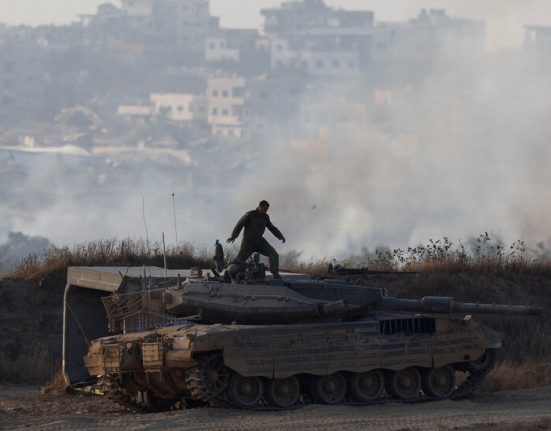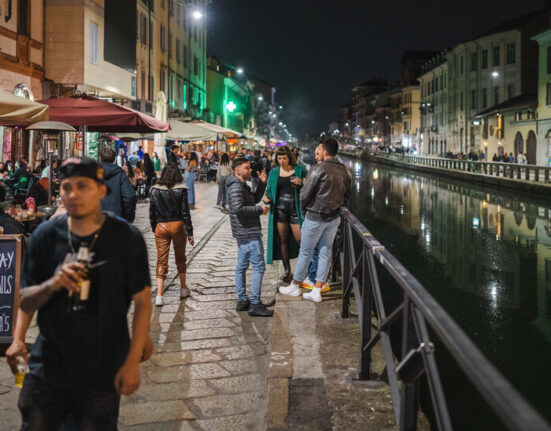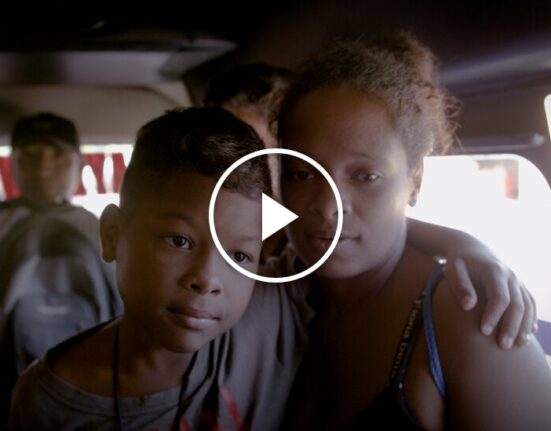The State Department abruptly canceled travel for thousands of refugees already approved to fly to the United States, days before a deadline that President Trump had set for suspending the resettlement program that provides safe haven for people fleeing persecution.
The cancellation of the flights comes on the heels of an executive order signed by Mr. Trump on Monday that indefinitely paused the refuge resettlement. The order effectively grinds to a halt the process of bringing refugees into the country, which involves multiple federal agencies, as well as nonprofits that receive the newcomers.
More than 10,000 refugees were currently in the pipeline to travel to the United States, according to government data. They include Afghans who faced danger because of their association with the United States before the military withdrawal from Afghanistan. Among other refugees who had been approved for travel were people from Africa, Latin America and the Middle East.
The sudden halt to the flights was an agonizing blow to refugees who had been following a complicated and lengthy process to enter the country legally, resettlement group workers said.
Angela Plummer, the executive director of Community Refugee & Immigration Services, which resettles refugees in Columbus, Ohio, said that the organization had been expecting dozens of arrivals on flights that had been suspended.
“These are people who followed all the rules and who are now left in danger,” said Ms. Plummer. “It’s heartbreaking.”
The decision to pause the refugee program is in line with Mr. Trump’s promise to crack down broadly on immigration.
Under the decades-old refugee program, people who have fled their home countries as a result of persecution, war or other life-threatening causes can legally immigrate to the United States. Mr. Trump said that continuing to receive them would burden communities that were not equipped to handle them, according to the order that he signed on Monday.
The State Department followed his order with a memo Tuesday that said “all previously scheduled travel of refugees to the United States is being canceled, and no new travel bookings will be made.” Organizations, such as the International Rescue Committee and others that assist refugees, it noted, “should not request travel for any additional refugee cases at this time.”
On Wednesday, U.S. refugee officers in Homeland Security agencies, such as U.S. Citizenship and Immigration Services, were told to stop making decisions on refugee cases, according to an internal memo obtained by The New York Times.
News that the Trump administration had canceled travel even for refugees already cleared to be resettled in communities across the United States shocked the leaders of nonprofit organizations that are contracted by the State Department to assist the newcomers.
“This abrupt halt to refugee admissions is devastating for families who have already endured unimaginable persecution and waited years for the chance to rebuild their lives in safety,” said Krish O’Mara Vignarajah, the head of Global Refuge, in a statement.
“Refugees go through one of the most rigorous vetting processes in the world,” she continued, “and it’s heartbreaking to see their dreams of safety derailed just days before, or in some cases, just hours before they were set to begin their new lives here.”
Eskinder Negash, president of the U.S. Committee for Refugees and Immigrants, said that “many people have been waiting for years, and in some instances decades, in refugee camps and have diligently gone through the refugee process to receive travel authorization.”
“Even if the refugee program is reopened in the future, the indefinite suspension of refugee travel and processing will have lasting trauma and impact on refugees and families,” he said.
Ms. Plummer said her group had been fielding calls from distraught clients who have been waiting years for their relatives to arrive, only to realize that the prospect of reunification is now bleak.
Among them is Nur Ahmed, who arrived in Columbus in 2010, after fleeing civil war in Somalia. He sponsored his child, young sister and mother to join him.
Their case was stalled during Mr. Trump’s first term as president.
Mr. Ahmed’s son and sister, both in their 20s, arrived last week, just before he returned to the White House. But his mother, 70, was expected early next month, and her arrival could be postponed indefinitely.
“I am very lucky that my son and sister arrived, but I feel sad that my mom is left behind,” he said.
Often members of the same family are assigned different travel dates, and in this case it could mean many more years of separation.
“Trump delayed us before; now he is back and he is delaying again,” said Mr. Ahmed, who is a cross-country truck driver. “All I feel is pain since Donald Trump arrived again.”
“I haven’t seen my mom since I left, and I don’t know when I will see her again,” he said in an interview, while hauling dry foods on a highway in Texas.
As part of an avalanche of executive orders to slash immigration, Mr. Trump suspended the refugee resettlement program as of Jan. 27. Officials with resettlement agencies had hoped that refugees who had completed a yearslong process and been booked on flights would still be able to travel to the United States.
In his first administration, Mr. Trump dismantled the refugee program by imposing additional layers of vetting of applicants who he deemed to pose security risks and lowering the goal for the number that the United States was willing to take.
The president makes an annual determination of how many refugees the United States is willing to accept in a given year, and the numbers have varied, with Republican presidents historically setting some of the highest caps.
However, the number of refugees admitted to the country sank to the lowest on record, to about 11,000 in 2020, Mr. Trump’s last year in office, down from 85,000 in 2016 under President Barack Obama. Mr. Trump prioritized religious minorities, mainly white Christians from countries like Moldova and Russia.
President Biden rebuilt the program, and refugee admissions soared, reaching 100,000 last year, the most in three decades.
This time, Mr. Trump has justified suspending refugee admissions on the grounds that they strain resources of cities that need to benefit Americans.
“The United States lacks the ability to absorb large numbers of migrants, and in particular, refugees, into its communities in a manner that does not compromise the availability of resources for Americans,” said the order, which was signed by Mr. Trump within hours of his inauguration.













